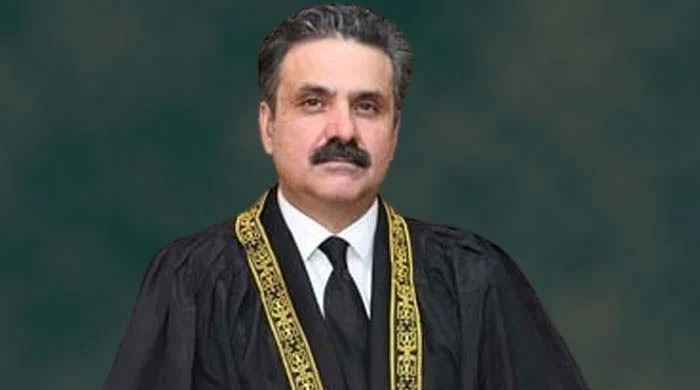The recent nomination of Supreme Court Justice Yahya Afridi as the new Chief Justice of Pakistan marks a pivotal moment in the country’s judicial history. The result of the 26th Constitutional Amendment, Justice Afridi’s appointment is being hailed as a victory for merit-based selection, moving away from seniority-based traditions that once dominated the judiciary.
In a closed-door meeting of the Special Parliamentary Committee, formed under the 26th Amendment, Yahya Afridi was unanimously nominated as Chief Justice. While members of the Sunni Ittehad Council—Ali Zafar, Barrister Gohar, and Hamid Raza—chose to boycott, the remaining 12 members of the committee gave their two-thirds majority vote to Afridi. His non-political and impartial stance throughout his career made him the ideal candidate for this esteemed position.
Justice Yahya Afridi, a native of the tribal areas (erstwhile FATA), has long been recognized for his dedication to upholding the rule of law. With a judicial career that spans over three decades, his decisions have consistently reflected constitutional integrity, steering clear of any controversies. His strong sense of fairness and his measured approach to legal matters have earned him a reputation as one of Pakistan’s most respected judges.
A Journey Rooted in Excellence
Justice Afridi’s impressive academic background speaks volumes. He received his primary education from Aitchison College, Lahore, and later graduated from Government College, Lahore. His thirst for knowledge took him to the University of Cambridge, where he earned his LLM on a Commonwealth Scholarship. He entered the legal profession in 1990, first practicing in the High Courts and later in the Supreme Court. He was appointed as an Additional Judge of the Peshawar High Court in 2010 and became its permanent judge in 2012. In June 2018, Justice Afridi was elevated to the Supreme Court of Pakistan.
His judicial journey also saw him serve as Assistant Advocate General of Khyber Pakhtunkhwa, further sharpening his legal acumen. Despite his involvement in several significant cases, Justice Afridi has always remained neutral, staying true to the constitution and law. It is this impartiality that has made him a beacon of trust in the judicial circles.
A New Era of Merit-Based Selection
The appointment of Justice Afridi as Chief Justice is being seen as a shift in the judicial system, where merit now triumphs over seniority. According to legal experts, this change is a direct outcome of the reforms introduced under the 26th Constitutional Amendment. For the first time in a decade, a Chief Justice has been appointed from Khyber Pakhtunkhwa, and for the first time ever, from a tribal region. This appointment is a profound message to those advocating for rights in Khyber Pakhtunkhwa, symbolizing the growing representation of historically marginalized regions in Pakistan’s top judicial positions.
This shift is not just symbolic. Like Justice Qazi Faiz Isa from Balochistan, Justice Yahya Afridi’s rise from Khyber Pakhtunkhwa demonstrates that individuals from smaller provinces, regardless of their backgrounds, can reach the highest judicial offices in Pakistan. His appointment is a testament to the country’s efforts to ensure equal representation for all, especially those from underdeveloped regions.
A Legacy of Greatness
Justice Yahya Afridi comes from a family known for its contributions to Pakistan. His father, Omar Afridi, was a distinguished military officer, having earned both the Sword of Honour and Norman’s Gold Medal from the Pakistan Military Academy (PMA). His grandfather, Dr. Munawaar Afridi, was a towering figure in the medical field, earning a place on the Munks Roll of the Royal College of Physicians, a distinction awarded to inspirational physicians since 1540. Dr. Munawaar Afridi’s legacy also includes his role as the Vice Chancellor of Peshawar University, where he donated his personal earnings for the institution’s benefit. A house in Cadet College Kohat is named after him, and he is remembered alongside another prominent figure, Justice M.R. Kiani.


